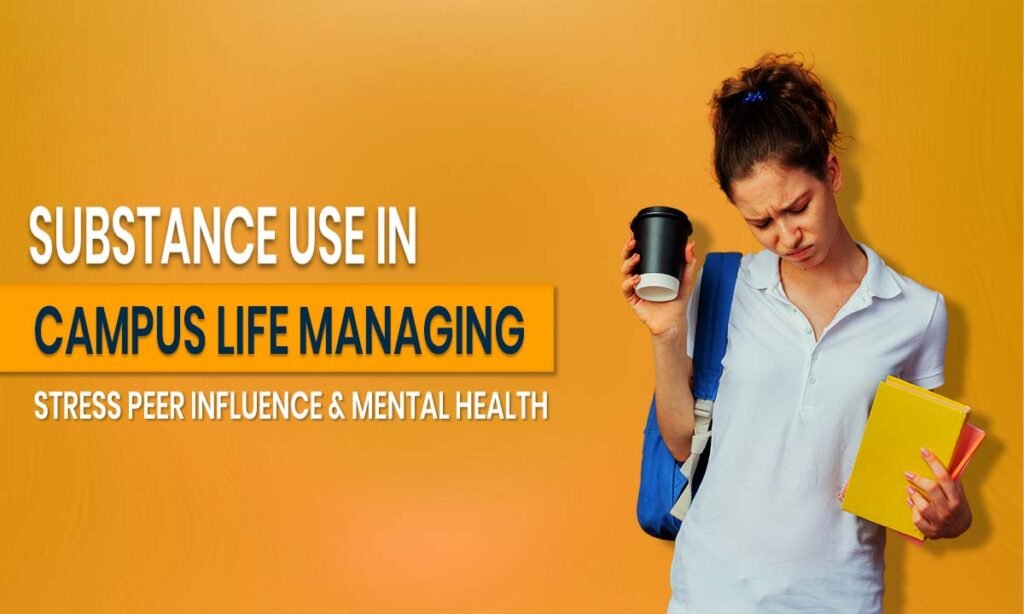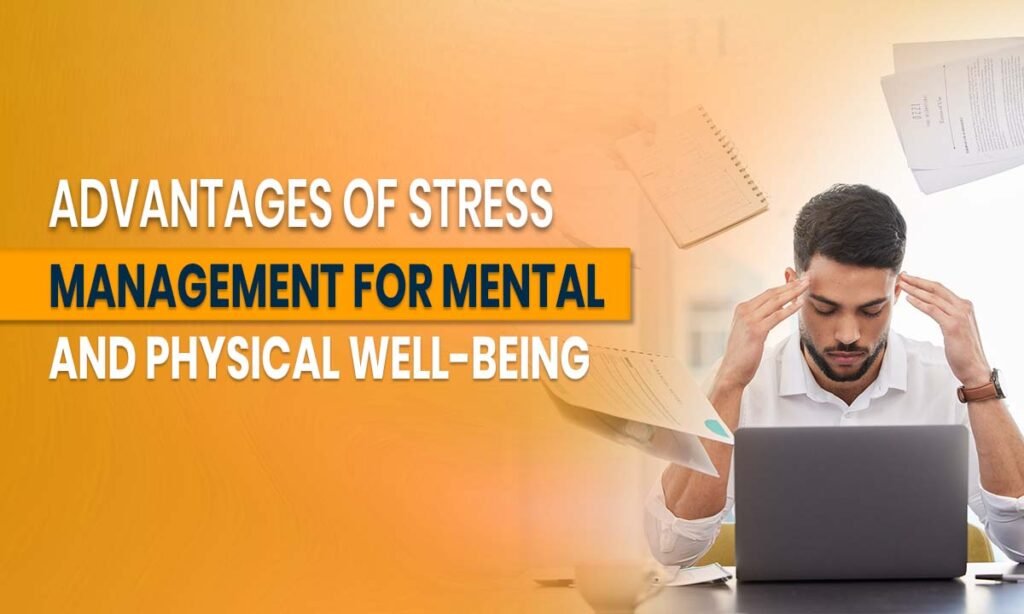
Campus life can involve a transition from school to college. This transition may incorporate a lot of freedom in comparison to school life. The freedom, if not managed properly might lead to mental health disorders such as substance use disorder. Peer influence can shape one’s college experience. Substance use in college students can be influenced by peer pressure.
The youth can be encouraged to take steps towards a healthy body. Managing stress and developing healthy daily habits are crucial steps towards a better college life.
Table of Contents
ToggleThe Reality of Substance Use in College Life
Substance use in college has increased manifold with easy access to illicit drugs and other harmful substances. College students are often in the young adulthood age group, and that age can be prone towards developing substance use disorders, also due to a lack of proper awareness.
How Common Is Substance Use Among Students?
Alcohol use disorder is quite commonly observed amongst college students. There are a lot of cases related to binge drinking reported amongst college students. These actions can have severe consequences for student’s future life.
College Becomes a Risk Zone
Some probable reasons why college becomes a risk zone for students engaging in substance use include:
- Peer influence
- Easy accessibility
- Newfound freedom
- Academic pressure
- Experimentation
Key Triggers Behind Substance Use
As a part of psychotherapy, the triggers behind maladaptive behaviour are often identified to better understand the cause and work on it in a healthy way. Some commonly experienced triggers for the students are mentioned below.
Academic and Performance Pressure
Students often face academic pressure, for example, competition with peers, competitive exams, very less seats, etc, can make one feel anxious and lead to the use of substances and drugs as a coping mechanism.
Peer Pressure and Social Belonging
- Peer influence
- Lack of assertiveness
- Fear of missing out
Mental Health Struggles
Sometimes students facing mental health struggles may resort to the use of substances as a treatment method without professional guidance. This can do more harm as one feels dependent on the substance and can get addicted as well.
Lack of Awareness and Healthy Outlets
Students may not be fully familiar with the harmful consequences of drugs and might start them out of curiosity or a need for experimentation. Managing stress may also be one of the goals for students using substance use however, they need to be aware of healthy ways for stress management.
The Mental Health Impact of Substance Use
Use of illicit drugs and substances can impact different areas of life, including but not limited to physical health, mental health, and social health. The impact can be felt for both short-term and long-term durations. It can also be life-threatening under some circumstances
Short-Term Effects on Mood and Focus
Some ways in which cognitive and psychological functioning can be influenced include:
- Irritable mood
- Mood swings
- Difficulty focusing
- Impaired memory
- A rush of emotions
Long-Term Emotional Consequences
The long-term emotional consequence can also include the development of a substance use-related mental health disorder because of dependence, tolerance building, addiction and withdrawal symptoms.
Recognizing the Warning Signs
Caregivers, teachers and those associated with the student can be mindful of certain warning signs. While these do not necessarily mean a diagnosis of substance use disorder, they can indicate a need for reaching out to professional support.
Behavioral Changes
Some behavioural patterns that can be a cause of concern include:
- Increased involvement in conflicts and aggressive behaviour
- Engaging in risky behaviour such as reckless driving
- Increased absenteeism for no specific cause and decreased productivity
Emotional and Physical Indicators
Emotional and physical indicators of substance use disorders can include:
- Extreme mood swings
- Feeling lethargic
- Sleep disturbance
When to Step In or Seek Help
If warning signs are being identified and the frequency is also increasing, then one can try to understand the individual and offer them space to express.
Healthy Ways to Cope with Campus Stress
Students often experience emotional concerns, and one can cope with those concerns using healthy strategies that empower oneself.
Time and Stress Management Strategies
- Maintaining a to-do list for each day
- Taking breaks in between long working hours
- Prioritising and delegating tasks as needed
Building Supportive Social Circles
- Identifying a healthy support system
- Understanding the cost of conforming to substance use
- Taking a stand against bullying and negative peer influence
Using Campus Mental Health Resources
- There are mentors and supervisors whom one can reach out to
- Mental health concerns can also be shared with college counsellors
- Student committees can help in creating awareness about healthy coping strategies
Lifestyle Habits That Boost Resilience
- Gratitude journaling
- Use of affirmations
- Guided visualisation
Role of Universities and Educators
Substance use in college students can be reduced with the help of collaborative efforts of educators, parents and students. The university can take steps to ensure a healthy campus environment.
Promoting Mental Health Awareness
- Industry experts can be asked to speak on topics such as ‘stress management’, ‘impact of drugs and substances’, etc
- Campus counsellors can offer a non-judgmental and safe space that allows students to share their concerns
- Faculty members can try to empathise with the academic pressure of students and offer personalised support wherever necessary
Talking About Substance Use Without Judgment
Talking about one’s concerns can be one of the initial steps towards working on them. A few of the many ways to work on substance use-related issues and embark on a recovery journey as a college student can include:
- Seeking support through counselling sessions
- Joining student-friendly support groups
- Exploring rehab treatment for substance use disorder
- Consulting psychiatrists and psychologists for evaluation
- Opening up amongst loved ones for proper guidance
Conclusion
Your early 20s can play a crucial role in shaping your future life. College students who are in their 20s might want to explore and in that excitement may end up engaging in unhelpful behaviour. Substance use disorder and other mental health concerns may create a hassle in achieving one’s goals. Rehab treatment from skilled professionals can be a turning point for these students. Athena Luxus in Gurgaon is one such rehab center that aims to offer the best quality services for today’s youth.
You can reach out to us for more details regarding our treatment plan at +91-9718921212 and we would be happy to support your journey!
Frequently Asked Questions
Ques 1 – Why do college students turn to substance use?
Ans 1 – College students can start substance use due to several reasons such as peer influence, difficulty managing stress and lack of proper awareness.
Ques 2 – How does peer pressure affect student mental health?
Ans 2 – Peer pressure can negatively influence one’s mental health and may also force the individual to engage in behaviour that they otherwise wouldn’t do.
Ques 3 – What are healthy ways to manage academic stress?
Ans 3 – Some healthy ways for managing academic stress include:
- Yoga and meditation
- Support groups for students
- Journaling every day
Ques 4 – Can counseling help students with addiction or anxiety?
Ans 4 – Yes, counselling can be a useful strategy for managing stress, anxiety and addiction related concerns.
Ques 5 – What role can universities play in preventing substance abuse?
Ans 5 – Universities can conduct workshops and seminars to educate students about the severe consequences of substance use.
